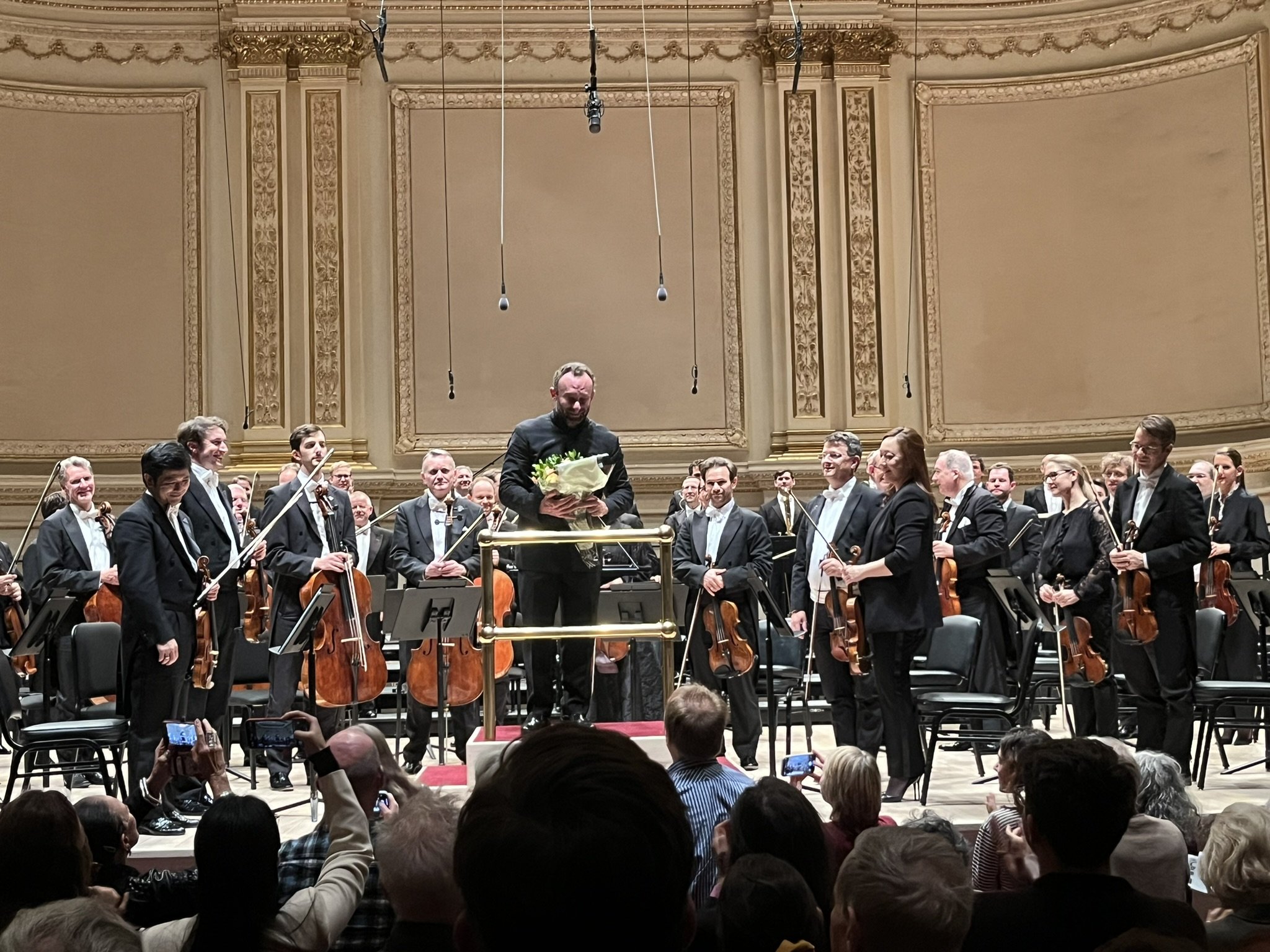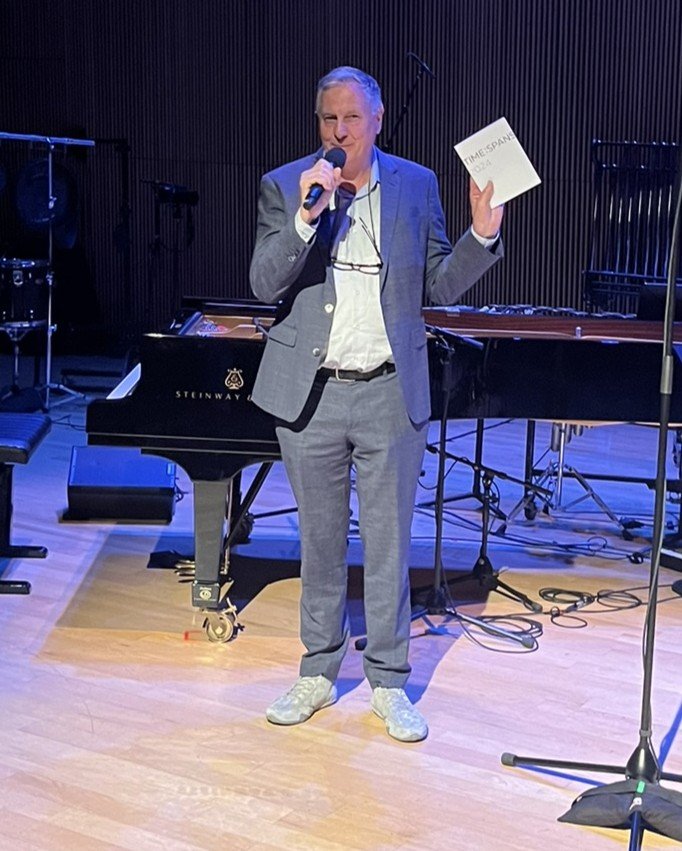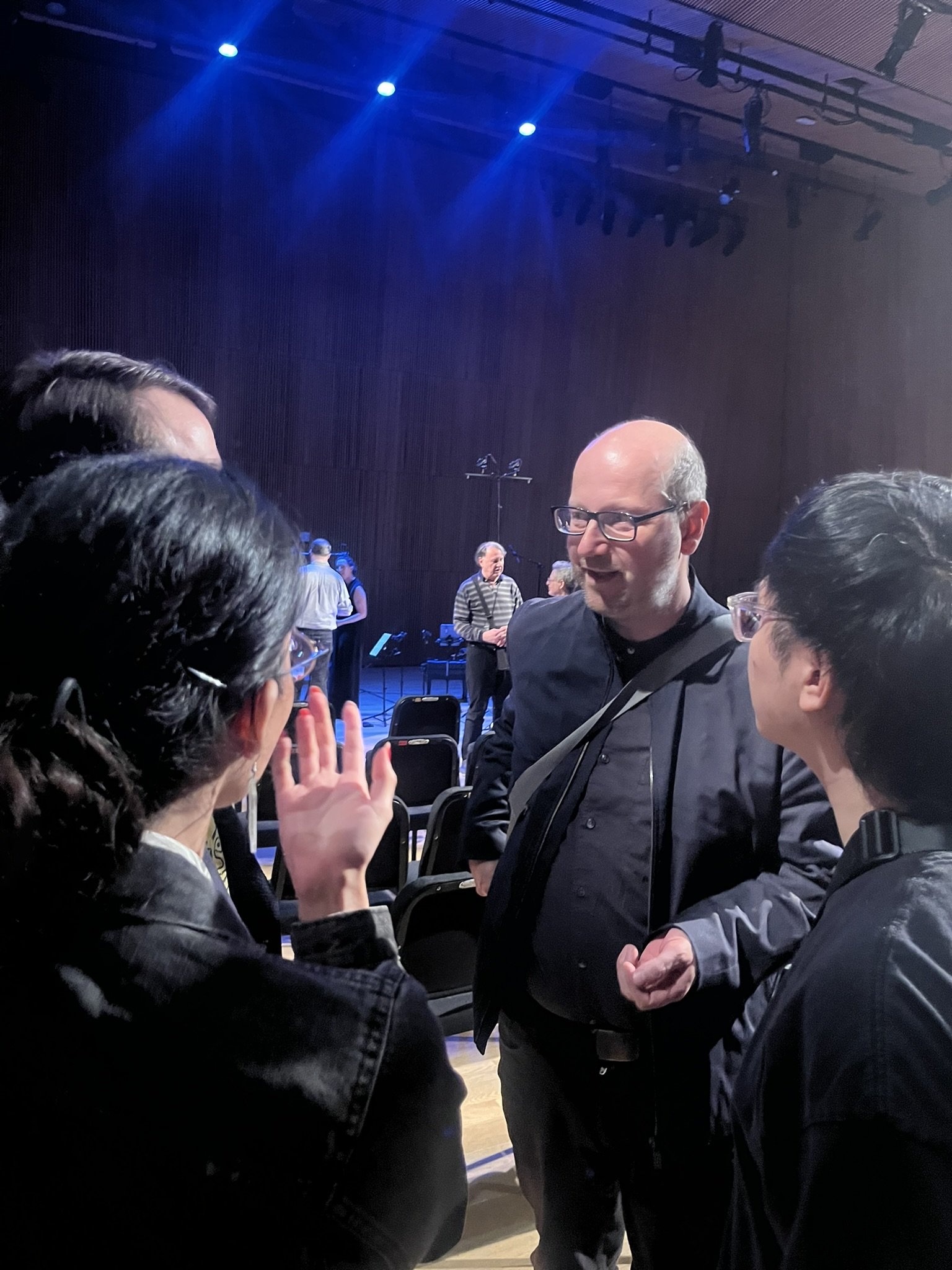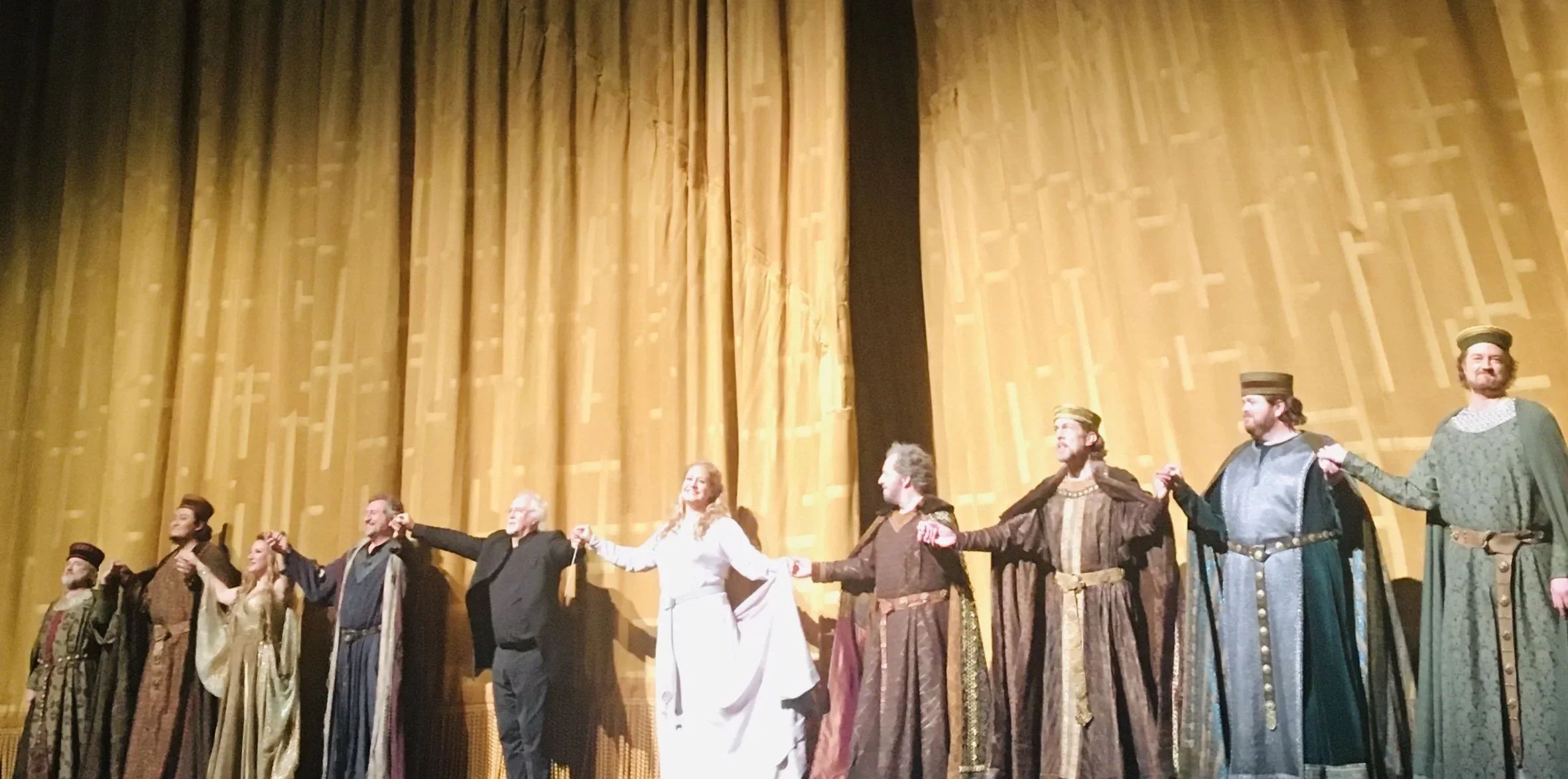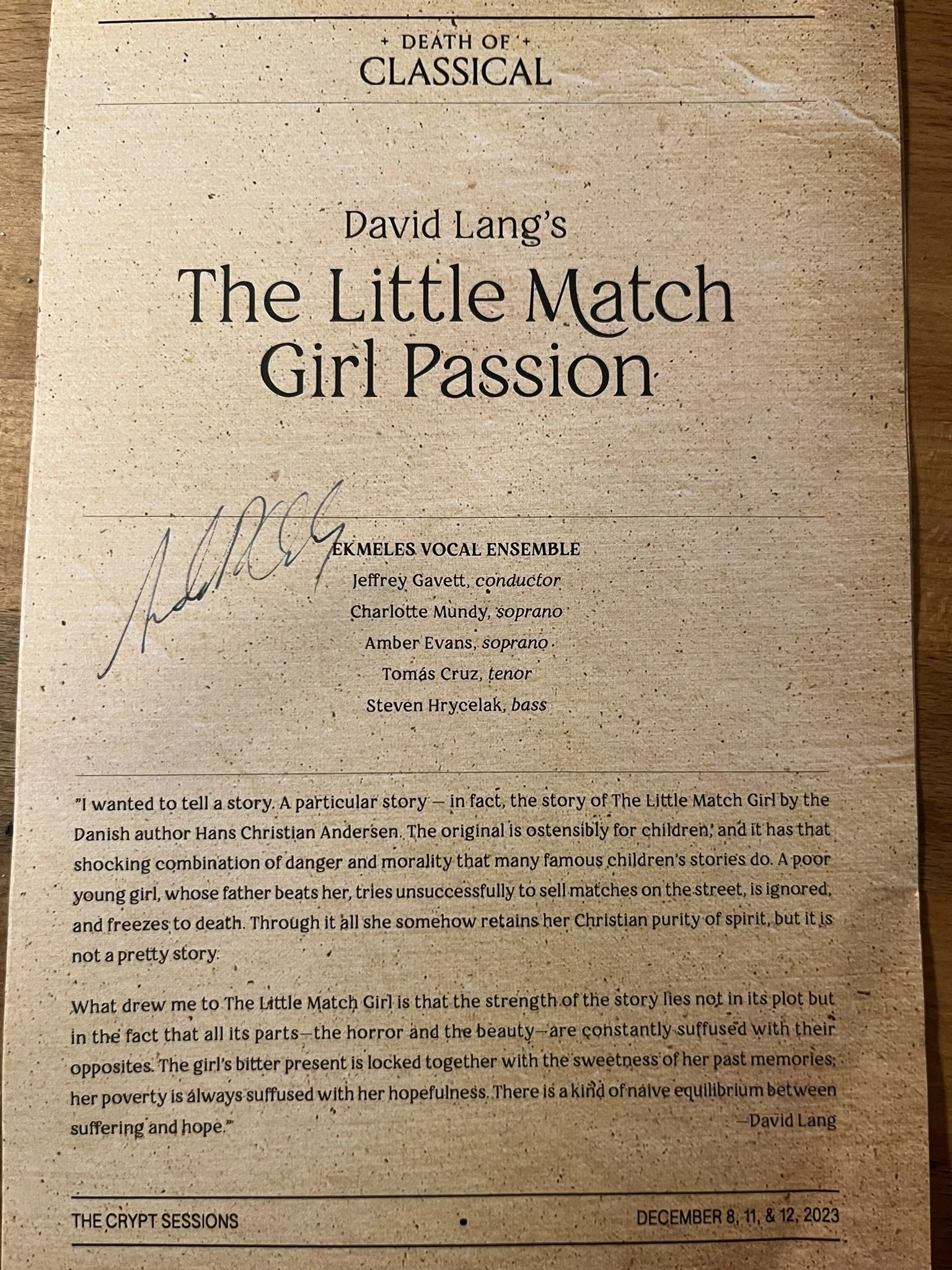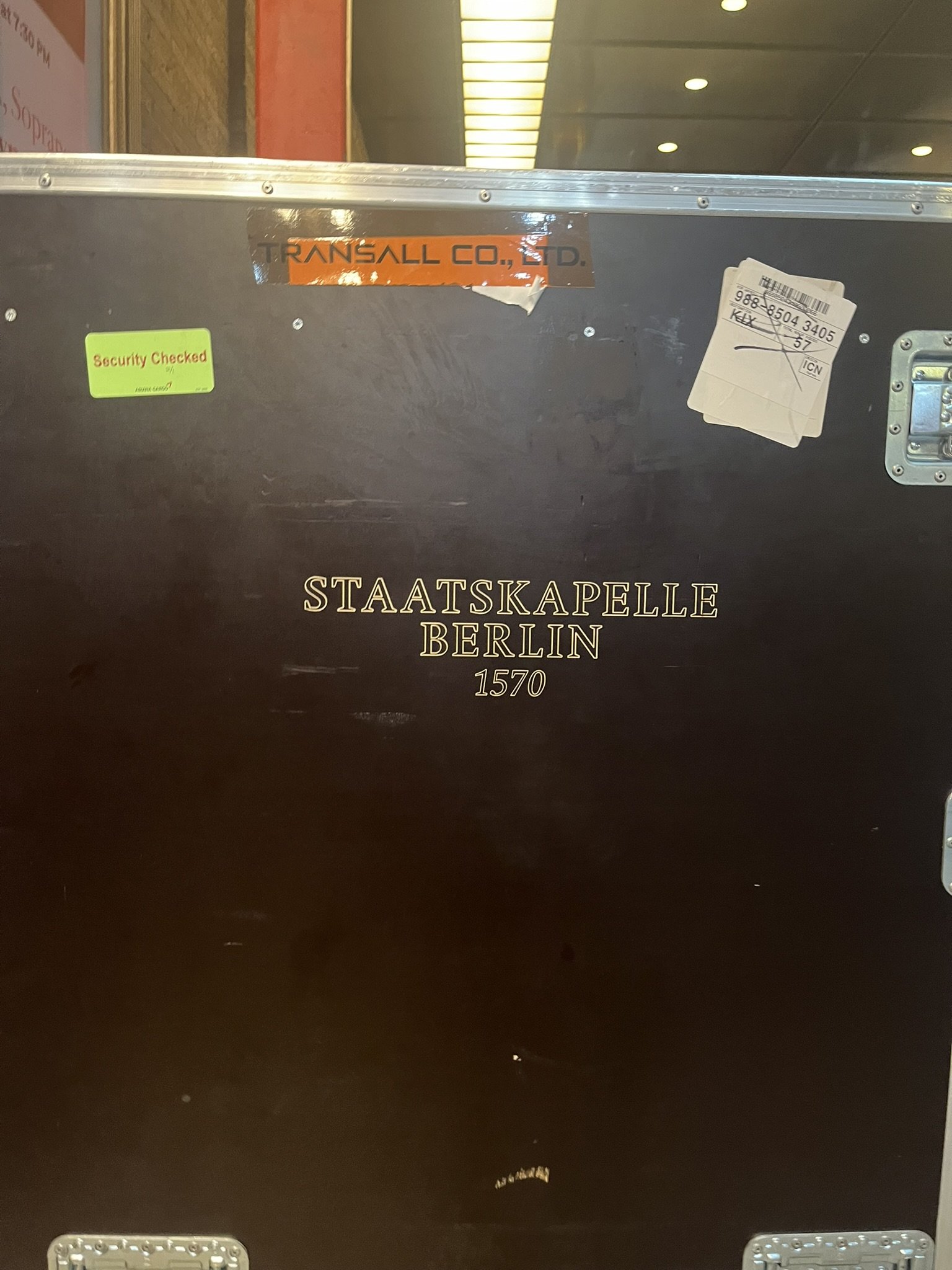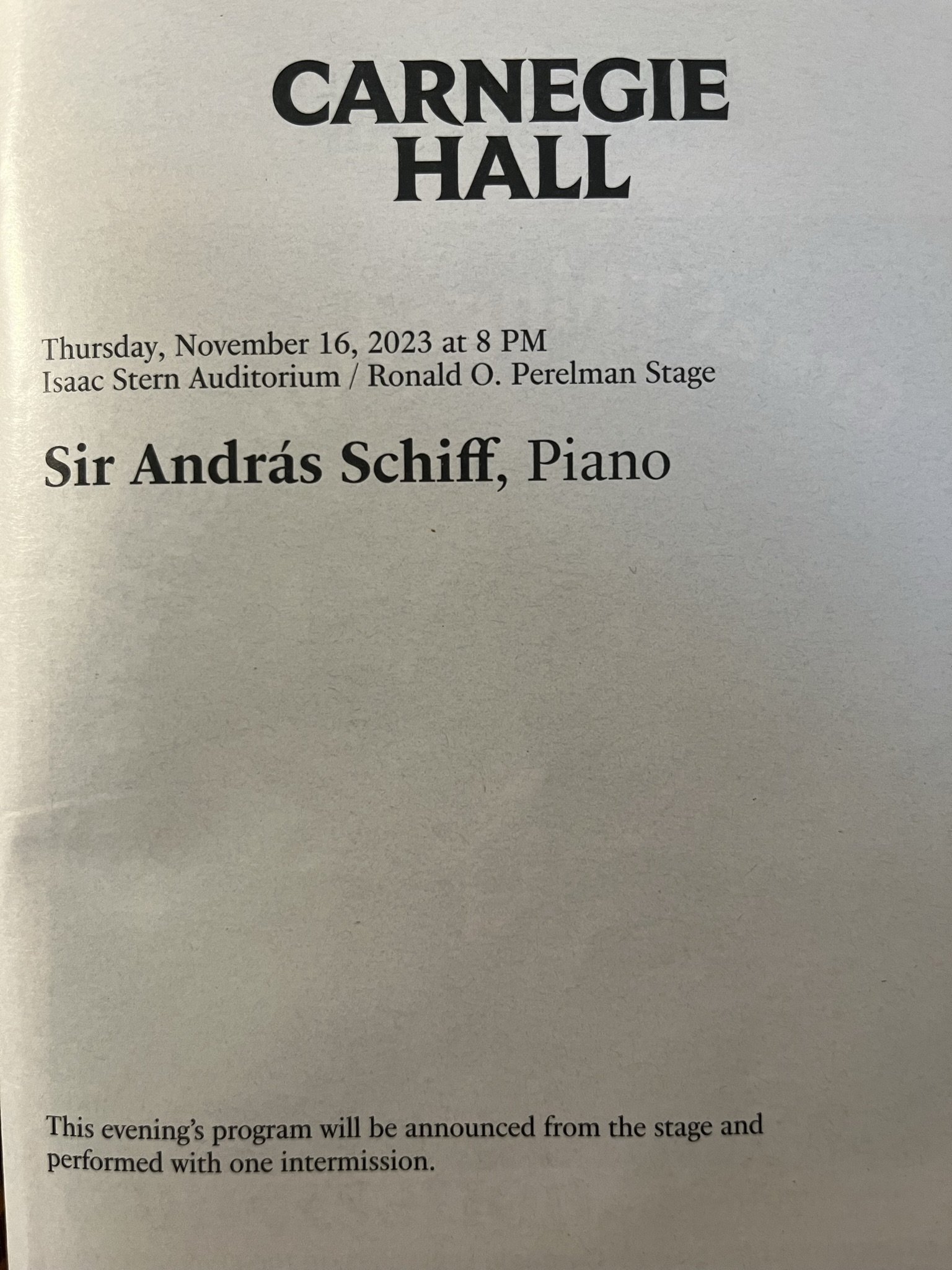Even the audience felt like soloists. Under Kirill Petrenko, the orchestra combined energy and precision, with Vilde Flang’s violin stunning. The program included Rachmaninoff’s Isle of the Dead, Korngold’s Violin Concerto, and Dvořák’s Symphony No. 7. Individuality and freedom abounded, yet the music unified everyone. Highlights were Rachmaninoff’s intense solo, Korngold’s chamber-battle-like interplay, and Dvořák’s cello tutti. Petrenko proved he creates precise, vivid, and powerful musical experiences.
Read MoreMao Fujita at Carnegie
Mao performed at Carnegie on Sunday afternoon. Yashiro felt like him, and the high notes in the second half were beautiful, reminiscent of Trifonov’s first Carnegie visit. Liszt was great, but Yashiro was amazing. Mozart and Beethoven felt vivid, with Mao’s breathing and energy connecting to the music like Pollini or Brendel. The hall was relaxed; I could see every detail and hear even snoring during Appassionata. Mao looked happy throughout. His performance hinted at Chopin’s interest in Beethoven, just as Yashiro reflected Scriabin. Classical music’s power to unite different approaches was deeply appreciated in these chaotic times.
Read MoreYarn/Wire: Challenge to Difference
Vivaldi’s Spring experiments with harmony and ingenuity; Yarn/Wire challenges differences using various tools, even everyday objects. In AUDITORY SCENES, two performers applied electric massagers to a large drum, creating a sensation never experienced before. No familiar melodies, yet the tools connect to everyday life, opening minds like the flow of the Ganges. First-time viewers encounter a test of harmony and ideas, breaking mental shells and expanding perception—a refreshing experience before the busy concert season.
Read MoreCandillari’s prayer. I felt the ears she has developed from everything she has seen and heard.
カンディラーリの祈り。彼女がこれまでに見たり聴いたりしてきた耳を感じた。
Candillari's Ear and Heart at Juilliard Orchestra
On Monday night at Alice Tully Hall, the Juilliard Orchestra, conducted by Daniela Candillari, was full of warmth, dedication, and energy. Bacewicz’s Overture, written in Nazi-occupied Poland, was lively and upbeat. Juilliard student Sophia Werner’s Barber Violin Concerto showcased a fresh, rich tone and impressive dynamics. Shostakovich’s Symphony No. 10 conveyed deep fear and pain, with hesitant timpani and a sharply ironic concertmaster solo, all brought out masterfully by Candillari’s careful, expressive direction.
Read MoreYulian's Both Hands
Yulian Avdeeva performed in New York, filling the hall with emotion. Since having COVID, I felt a tightness in my heart, tears streaming, yet Liszt flowed through Yulian’s hands like a dream—rich, elaborate, and story-filled. Chopin’s delicate yet bold works were rendered on an orchestral scale. Yulian’s program wove Chopin and Liszt masterfully: Dance, Barcarolle, Chopin’s homage to Beethoven, Polonaise, and Liszt’s B minor Sonata. The encore was Liszt’s arrangement of Verdi’s Rigoletto quartet. A truly wonderful Romantic experience.
Read MoreAt Pioneer Works, Earl Howard and ICE, The opening venue since 2016
Inspired Inspiration in Brooklyn
The blind man, barefoot, enjoyed musical sparks with ten musicians. At Pioneer Works in Brooklyn, he and the ICE members engaged in a sonic conversation that seemed to awaken memories and imagination. In Rick’s piece, words transformed into sound, vividly emerging in the space. This new musical experience, rooted in everyday life, offers those of us living today a sense of guidance toward the future.
Read MoreThomas Fichter, the festival’s executive and artistic director. Saturday, August 24, 2024 at Mary Flagler Cary Hall, DiMenna Center for Classical Music
Time Spans: Life of Music 音楽の命 ニューヨーク現代音楽フェス
Yarn/Wire performed Olga Neuwirth’s Black Dwarf (2023) and works by Peter Eötvös at the Timespans 21st Century Music Festival in New York on August 23. Curator Thomas Fichter emphasizes giving new works sufficient rehearsal time so they can develop a “life of their own,” allowing each audience member to connect uniquely through experience. The music’s seeds transcend time and senses. Next year, the program will tour Montreal, Hesse, and Darmstadt.
Read MoreKlaus Lang: Space Paradox
At a New York studio, four string instruments carried me on a journey through time, their sounds clear and unclouded by audience noise. Lang invited us to experience the beauty of sound itself, and the repeated notes evoked vivid memories of steppes, winter winds, and morning mist with swans. Though the sounds traveled, they returned to their origin, and when the concert ended, even everyday noises seemed musical—until morning, when the world returned to normal.
Read MoreTannhauser, the old-school at Met, proves just as presentable — and arguably more necessary in 2023
Schenk’s 2023 Met production of Tannhäuser showcased a thrilling contest of skill among singers, with each performer elevating the others. Andreas Schager (Tannhäuser) ranged from joy to despair; Christian Gerhaher (Wolfram) conveyed elegance and warmth; Ekaterina Gubanova (Venus) thrilled with her voluptuous tone; Elza van den Heever (Elisabeth) impressed with luminous, effortless singing. Donald Runnicles led the orchestra with color and clarity. The Pilgrims’ Chorus was overwhelming, leaving a lasting impression.
Read MoreContemporary Artist,Trifonov at New York
He was considered a classical music concert pianist, but just a contemporary artist to me. His live art would fundamentally change New York's commercial art scene, but it was taken place at Carnegie Hall on 12.12.2023.
Hammerklavier sounded like paint being thrown onto a huge canvas.
It was a sound installation that blew away my knowledge and experience.
"Finger is heart", he said in this interview. What I saw was like his spirit through Steinway.
Read MoreBruckner 8th by Julliard Orchestra
Fresh Bruckner 8th by Juilliard Orchestra, conducted by Donald Runnicles. So precious to have their discovery and sensation together under amazing the maestro’s navigation.
Juilliard Orchestra
Donald Runnicles, Conductor
BRUCKNER Symphony No. 8 in C Minor
Read MoreIn the Crypt Session
On a December Friday night in a Manhattan church basement, Andrew Ousley curated The Crypt Session, an intimate concert for 40–50 attendees. The program included David Lang’s Four Voces and Minimized Effective Instruments and The Little Match Girl Passion. Every detail of the performance, from the acoustics of the curved stone space to the musicians’ preparation, created a deeply immersive experience, connecting centuries of Western musical development and delivering an unparalleled, profoundly moving sound.
Read MoreStaatskapelle Berlin's Brahms, "Heart and Mouth and Deed and Life"
Brahms’s music, with its “subtle symmetries,” blends Bach’s structure, Beethoven’s dynamism, Schubert’s lyricism, Schumann’s romanticism, and German folk influences, while reflecting the modernity of Wagner and Strauss and admiration for Baroque composers. At Carnegie Hall, the Staatskapelle Berlin under Yannick Nézet-Séguin performed all Brahms symphonies, offering a rare view of his complete vision. Combining dark sonorities with sensuous brilliance, Brahms’s works—admired even by Schoenberg—came vividly to life through virtuosic solos, choral brass, and delicate wind blends, testifying to both his humanity and the shared artistry of musicians and audience.
Read MoreBösendorfer by Schiff at Carnegie Hall
At András Schiff’s Carnegie Hall recital, given without a program, the atmosphere felt intimate, almost like being at home with the pianist. He spoke and played with remarkable presence, his Bach sounding spontaneous, as if the composer himself were improvising. This sense of immediacy shone in his Mendelssohn and Haydn, where he shaped each line with clarity and boldness, letting the music’s narrative emerge effortlessly and resonating with listeners of all tastes.
Read MoreSymphonic Artist, Schaghajegh Nosrati, Carnegie Debut
In her performance, the dynamics of her mentor Barenboim and the clarity of Schiff seemed to merge, while her own extraordinary humanity shone through, projecting a unique vision across the works. The depth of sound and harmonic richness she created was remarkable—not from volume or technical display, but from her profound connection to the music. From Beethoven’s Pastoral to Haydn’s tremolos and Alkan’s Piano Symphony, every passage revealed her insight and curiosity, bringing the Steinway at Weill Recital Hall to life in a way that felt both intimate and monumental.
Read MoreAnna Vinnitskaya at Boston 11.4.2023
The clip begins with Tchaikovsky’s Piano Concerto, featuring a “scherzo-like” interlude from Belgian soprano Désirée Artôt’s repertoire, highlighting Vinnitskaya’s emphasis on singing. In Boston, her performance conveyed a rhapsodic, selfless freedom. For the encore, she played Rachmaninoff’s Étude-tableau Op. 39, No. 5 as an eruptive inner monologue, reminiscent of Sergei Babayan’s New York recital, whose playing has been praised for its unmatched touch, phrasing, and virtuosity. The reviewer felt personally moved by Vinnitskaya’s passion.
Read MoreMallwitz debut Boston Symphony with Schubert 9th
Mallwitz’s performance of Schubert captivates with its vibrant energy and masterful structure. In the Fourth Movement of the Ninth Symphony, strings and brass gradually intertwine, building into a massive wave of sound that fully realizes the work’s emotional scope. The lyrical melodies, sudden orchestral outbursts, the Allegro non troppo’s relentless energy, and unexpected harmonic shifts highlight the symphony’s dynamic contrasts. Mallwitz’s positive, lively interpretation vividly brings out Schubert’s free musical spirit, guiding the listener to the work’s exhilarating heights.
Read MoreSergei Babayan Recital at Carnegie Hall
Sergei Babayan impressed at Carnegie’s Zankel Hall with meticulously controlled, emotionally rich performances of Rachmaninoff, Liszt, and Ryabov’s Fantasia. His Schumann Kreisleriana reshaped structure with improvisatory freedom, yet he avoided late-Romantic clichés, balancing turbulent passages with expressive design and slow sections with glittering, melancholic lyricism. Hailed for his emotional intensity, tonal color, and virtuosity, Babayan has been called “a genius” by Le Devoir and praised by Le Figaro for his unmatched touch and phrasing.
Read MoreKaleidoscopic Leif Ove Andsnes Recital at Carnegie
Leif Ove Andsnes, familiar with Dvořák since childhood, explored the composer’s nuanced cycle during the pandemic, balancing spiritual pieces like In the Old Castle with everyday sketches such as Toying. At Carnegie Hall, his recital ranged from folk-like melodies to Vustin’s Lamento, where shifting harmonies and restrained outbursts conveyed deep emotion, leading into Janáček’s 1.X.1905 “From the Street”, a mournful tribute to a young Czech worker. Silvestrov’s serene work followed as a plea for beauty. Throughout, Andsnes masterfully shaped Dvořák’s Poetic Tone Pictures, revealing both subtlety and lyrical brilliance.
Read MoreMirga Gražinyte-Tyla and City of Birmingham Symphony Orchestra at Carnegie Hall
Mirga Gražinyte-Tyla, though small in stature, commands the podium with sweeping, expressive gestures that seem to reach every musician, as if embracing the music itself. Her calm presence lets the music flow like a purposeful river, leaving quiet awe in its wake. In Debussy, the play of waves and the dialogue of wind and sea took on the weight of climate change, culminating in a strikingly powerful final climax where a force-of-nature conductor met Mother Nature herself.
Read More
